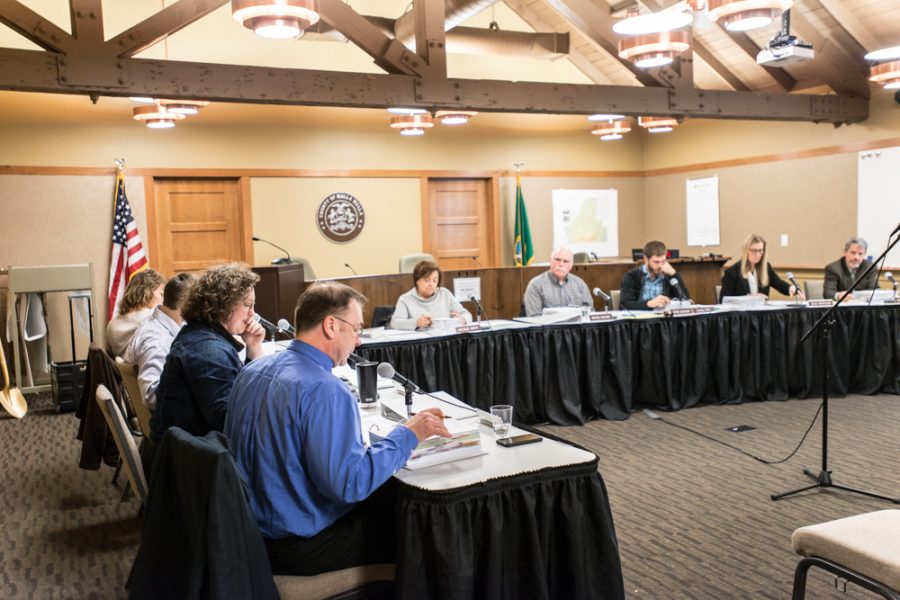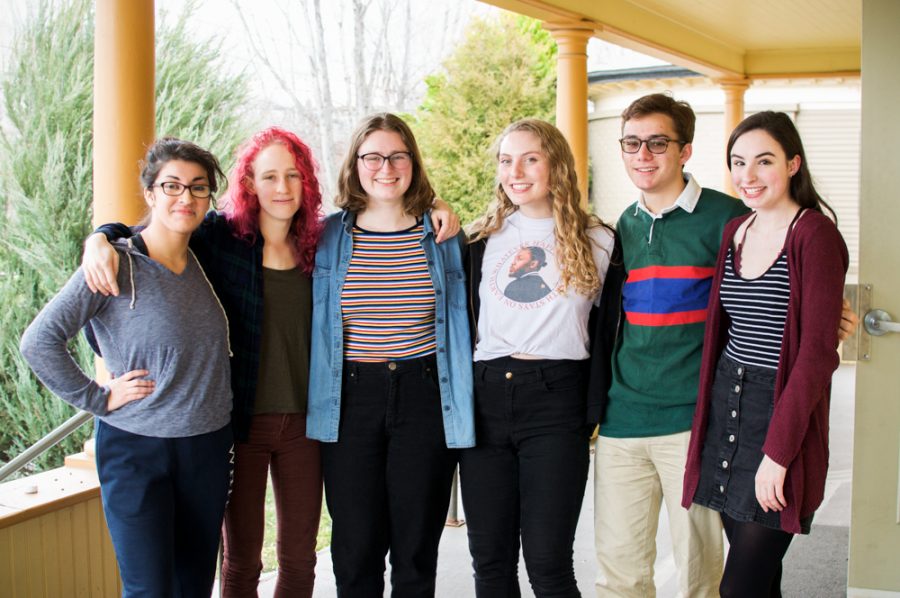Last spring, while meeting with Whitman students on an environmental studies excursion, Thundering Hooves farmer Joel Huesby told the group, “Eating is an intimate act. Do you know your farmer?”
One year later, Huesby has announced that Thundering Hooves is closing due to financial difficulties. With a familiar, local source of grass-fed meat gone from Walla Walla, many would-be conscious meat eaters are finding that the answer to Huesby’s question is an uncomfortable “no.” While there are other grass-fed meat producers operating near Walla Walla, few have figured as prominently on the Whitman campus. Huesby’s meat was often found on dinner plates, but his influence extended into the classroom.

“Joel Huesby is really good at selling the idea of humane, sustainable beef production,” said Aaron Bobrow-Strain, assistant professor of politics.
Bobrow-Strain has brought his food politics class to visit Thundering Hooves for the past four years, and said that Huesby’s ability to get people excited about sustainable beef allowed him to reach people who might not otherwise think critically about their food.
Professor of Environmental Studies Bob Carson, who took environmental studies excursions to Thundering Hooves, echoed this sentiment.
“Joel is such a powerful speaker,” he said, adding that the Thundering Hooves trip was often listed as a favorite excursion by students.
Ironically, Huesby’s ability to reach people may have contributed to Thundering Hooves’ downfall. According to him, the closure is the result of a dramatic increase in demand for Thundering Hooves meat, which went up 350 percent in the past year. As a result, the company expanded too quickly to keep up with repayments to creditors.
“The ability to finance that growth needs to come from earnings, not additional debt,” said Huesby in the Walla Walla Union-Bulletin. He added that he hopes to continue the Thundering Hooves idea in some other capacity in the future.
Beyond the classroom, the closure will also impact the local food scene in Walla Walla. The Daily Market Co-op, which stocks Thundering Hooves meat, will be particularly affected.
“We won’t have a source for locally and sustainably farmed animals,” said senior Elizabeth Bragg, who serves as the co-op’s volunteer coordinator. “It’s really disheartening.”
One of the co-op’s most popular products is the Made in Walla Walla Box. Customers sign up to receive a box of local food weekly, choosing from options that include salad greens, eggs, bread and grains. As part of the box, customers can add-on a meat option, which gives them a cut of Thundering Hooves meat every week. Bragg said that most customers purchase the meat add-on, and replacing the amount of meat that Thundering Hooves was able to provide will be difficult.
For regular customers, the closure has lead to uncertainty about food consumption.
“It’s a huge disappointment. They’re the only good meat place I know of that’s available in Walla Walla,” said sophomore Henry Gales.
Gales receives Thundering Hooves meat as part of his Made in Walla Walla Box, and typically consumes their meat for dinner four or five times a week. He said he’s unlikely to eat less meat with their closure, but is unsure where he’ll be able to buy ethically raised animals.
Bobrow-Strain said that his family also eats Thundering Hooves meat regularly, and isn’t sure what they will replace it with. He is also concerned that the closure might lead former Thundering Hooves customers to switch to supermarket meats which claim to be “natural” but still use feedlots and have substandard labor and environmental practices.
“I took students to a feedlot that was producing beef marketed as a ‘natural alternative beef’. Like most feedlots, it was feeding the cheapest feed possible. At that point in time, it involved bakery waste, which was crushed Oreo cookies,” he said.
Bragg said that the co-op is currently working with Upper Dry Creek Ranch, which is based in Weston, Ore., to supply grass-fed meat for Made in Walla Walla boxes. They are also working to find other local grass-fed producers.
In the meantime, Bragg hopes that the closure will allow people to reflect on their food choices and meat consumption.
“You can still eat well, support local producers and not have Thundering Hooves,” she said. “Maybe this is a good incentive for people to have less meat in their diet.”
Still, for loyal customers, moving on will be difficult.
“Thundering Hooves was a fixture,” said Gales. “I just never considered the possibility that it would be gone.”


















KG • Apr 8, 2011 at 7:05 am
Blue Valley Meats will open soon and will sell the remaining Thundering Hooves inventory:
http://www.bluevalleymeats.com/Letter_from_Keith.html
Linda Sue Buehler • Apr 7, 2011 at 11:17 pm
Crushed Oreo cookies!? Ack.
I’m opposed to beef that’s “finished” with grain feeding. in order to avoid genetically modified grain genes going into my tissues, I seek out 100% grass-fed meats. I guess Oreos qualify as chock full of GMOs from the grains to the corn syrup and including cheap eggs from sick Monsanto feed fed chickens. Yummy. The genes remain in the animals eating these products, including humans. Monsanto claims ownership wherever these genes are found; an interesting dilemma.